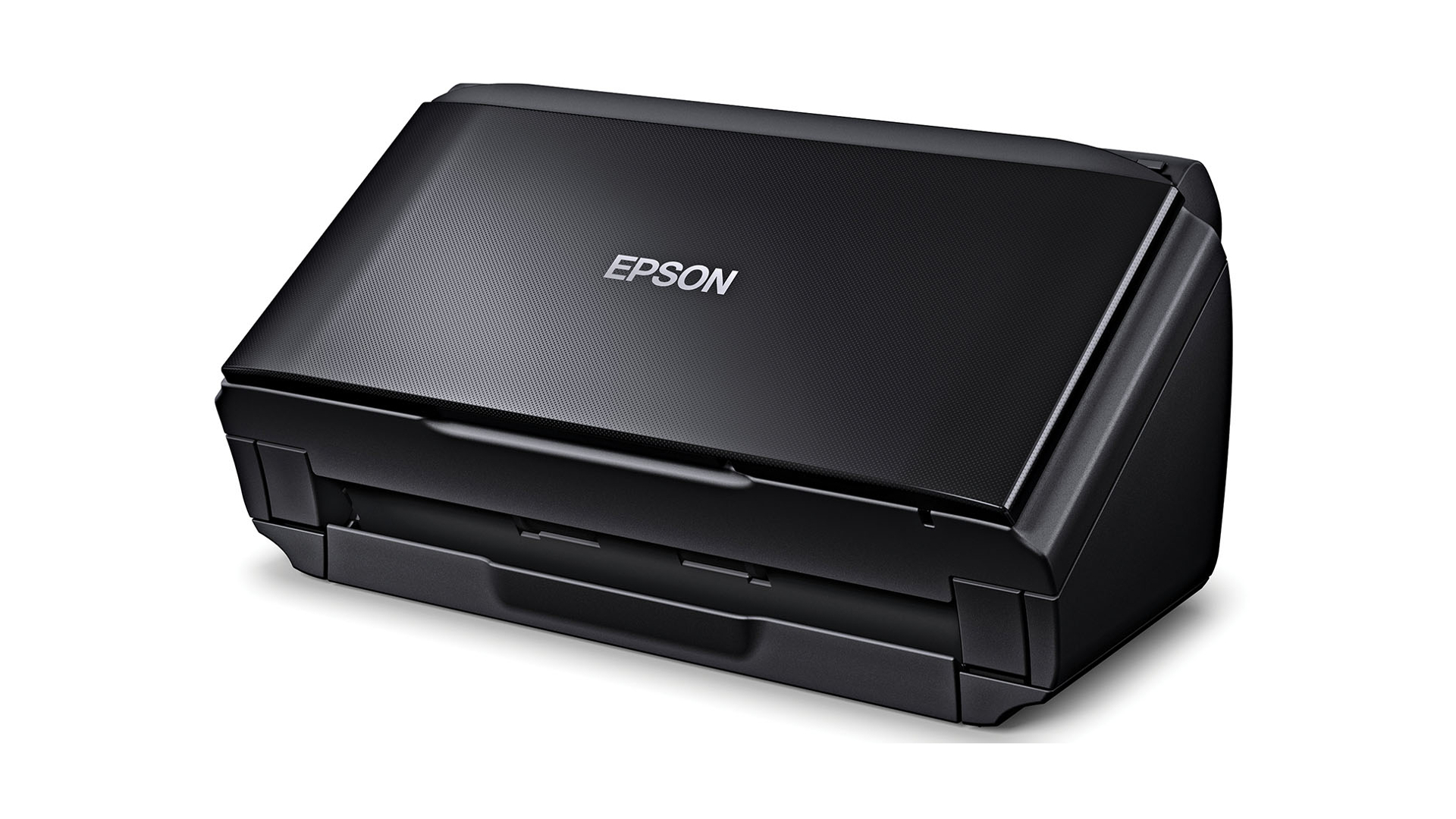TechRadar Verdict
A tiny powerhouse of document workflow technology, the DS-560 delivers wholesale scanning for those businesses ready to embrace it.
Pros
- +
Compact
- +
Fast scanning
- +
Scans folded sheets
Cons
- -
Flimsy output tray
- -
Can’t handle books
Why you can trust TechRadar
In the past businesses were deluged with paper that they invariably stored in an infinitely expanding number of heavy filing cabinets.
About 20 years ago computer technology reached a point where more efficient solutions could be employed. These developments allowed documents to be scanned, stored and then retrieved as needed. And the originals could be dumped in storage, used to reduce heating costs (ahem), or ideally be sent for recycling.
The Epson Workforce DS-560 scanner is the modern equivalent of the dedicated scanners that document workflow departments once used, allowing any small office to operate an ad-hoc scanning and document management facility. It retails around the £450 (about $590) mark, although it can be had for cheaper if you shop around online.

Design
The Epson Workforce DS-560 reminds us of the very early portable HP DeskJets, in that it has a remarkably small footprint that expands when you wish to use the device.
It’s only about 30cm wide and 15cm deep when folded up. The sloped front face of the DS-560 pivots back to become a document feeder, and the front telescopes out to retain already scanned items.
Epson made the controls very simple indeed, with only three buttons on the front (power, stop and start) and one switch to alternate between separated and folded document feeding.
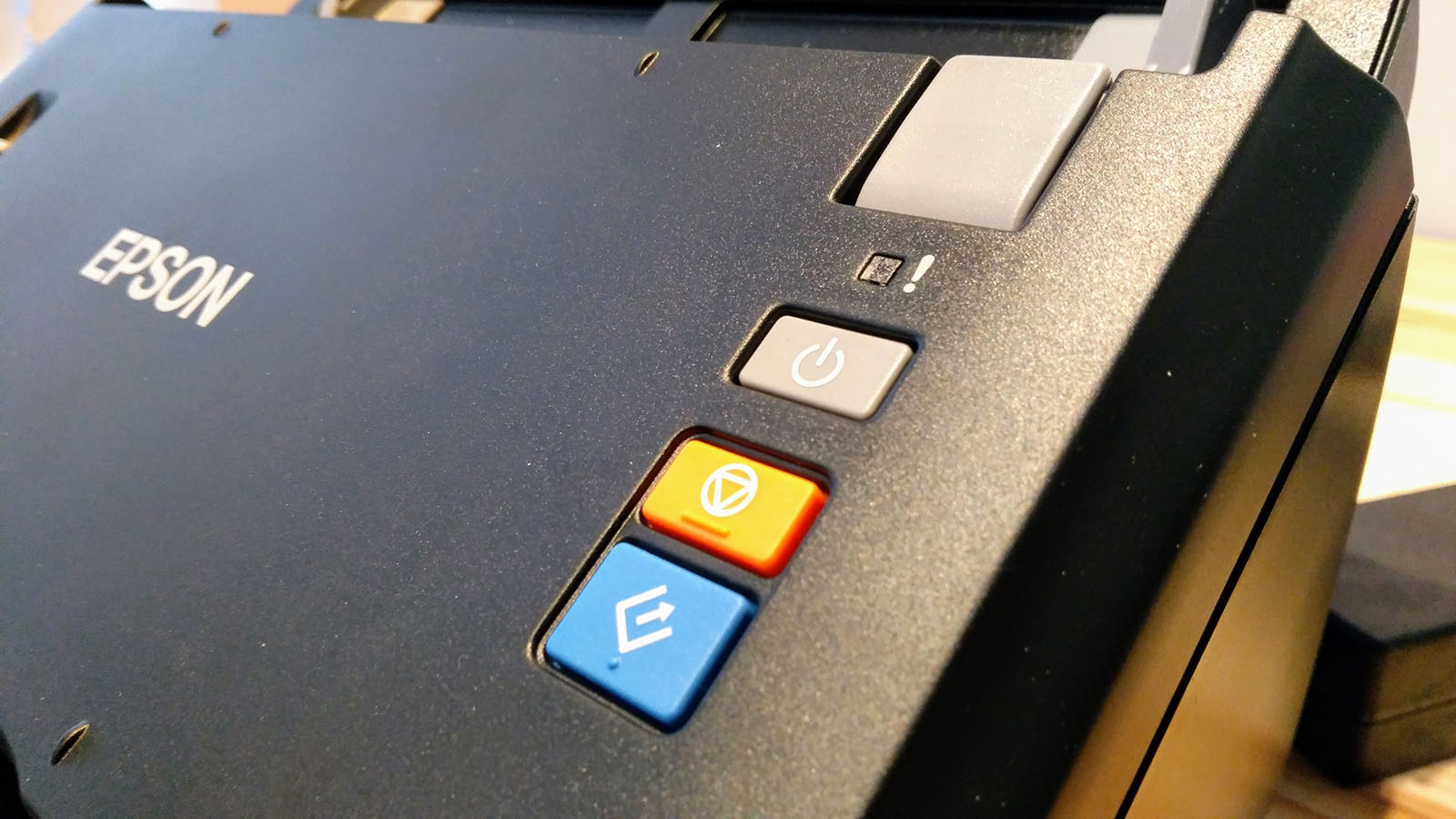
All other aspects of the operation of the scanner are software controlled. And, using those tools, captured scans can easily be redirected to a range of suitable workflow applications. These include Evernote, Google Drive, SharePoint and SugarSync. Although it’s a relatively easy exercise to make it work with any solution that accesses images stored in folders.
The feed mechanism will accept paper sizes from Letter/Legal through A4, B5, A5, A6 and even smaller. And up to 50 sheets can be preloaded for bulk scanning exercises.
Connection to the PC is achieved either by USB 2.0 or Wi-Fi, although if WPS is not active on the router, it will need connecting by USB initially to configure the Wi-Fi settings via the computer.
A switch on the rear selects either USB, AP mode Wi-Fi or Wi-Fi Direct connectivity.
The AP mode, in particular, allows you to take the device and a tablet (or laptop) to a remote location, connect the two directly and scan away.
There is also a network interface unit (SKU: B12B808451BY) for connecting the DS-560 directly to a wired LAN. This is aimed at those who would like the scanner to be controllable from multiple computers.
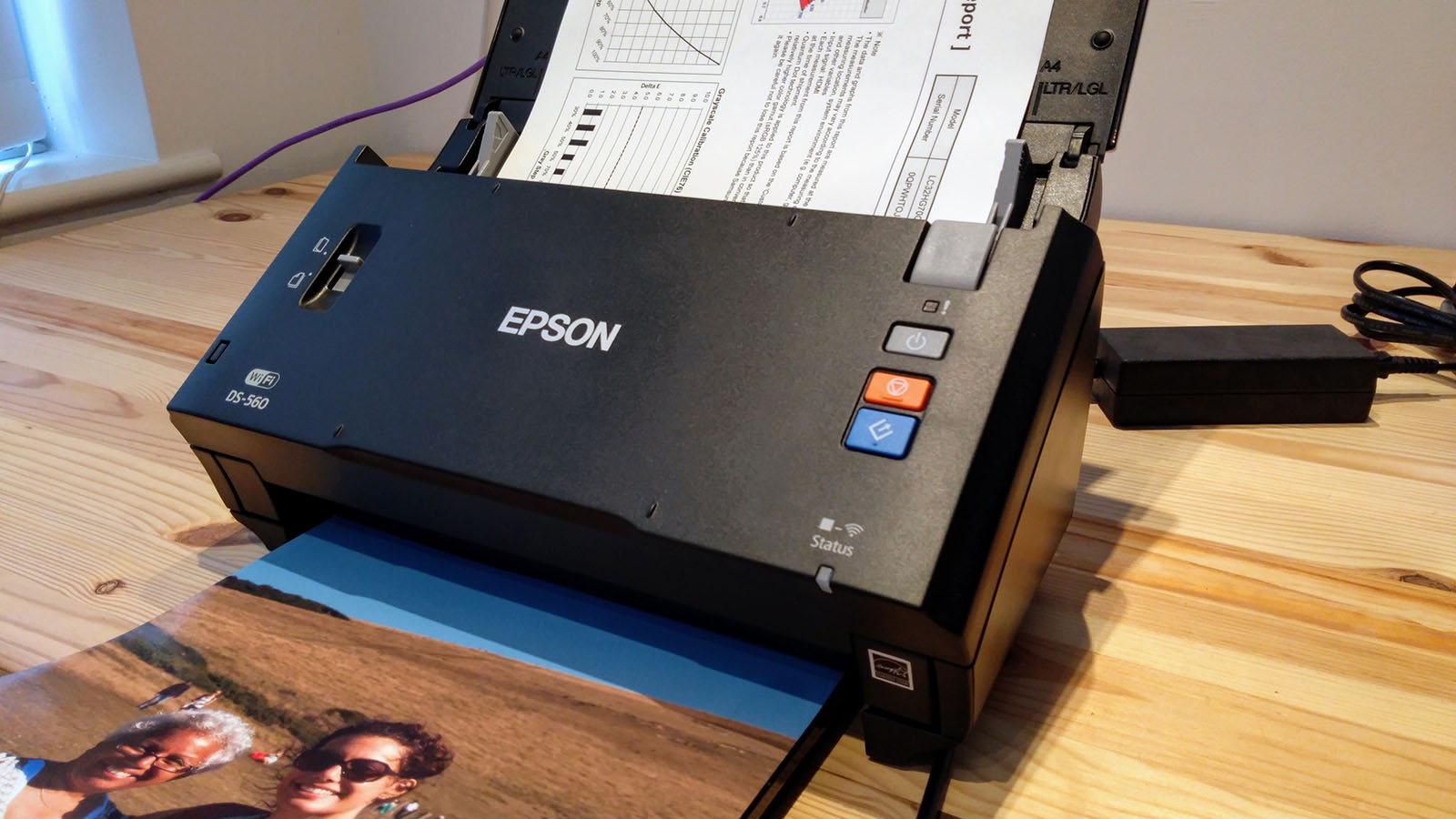
In use
Epson quotes that the Workforce DS-560 will scan 52 images per minute in monochrome and half that number in color, assuming A4 paper and a resolution of 200 x 300 dpi. In testing, it delivers almost those exact numbers.
The maximum scanning quality is 600 dpi, although choosing that resolution will increase file sizes and extend the time taken to capture.
A feature that helps speed up the scanning process markedly is the DS-560’s ability to duplex scan in a single pass. Being able to scan folded documents is also a blessing because normally a scanner would sense multiple overlapped sheets and assume a misfeed.
The main limitation of this design over a flatbed scanner is that it can’t scan a book unless you’re prepared to pull it apart into individual pages. Adding a flatbed function would have made this device much larger and more complicated, and possibly less reliable.
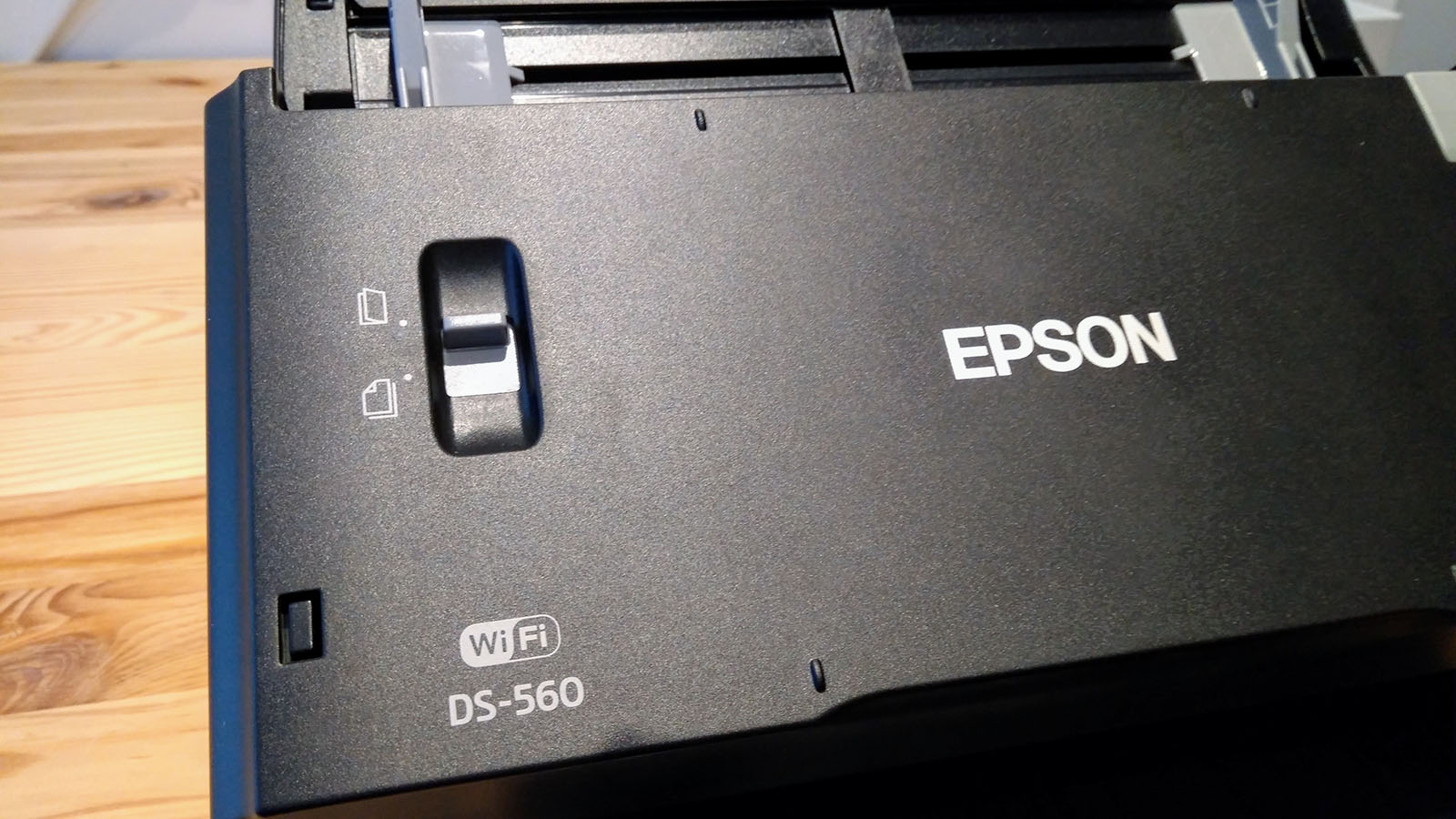
The other side of that coin is that because it has no built-in display, it needs either a PC or tablet (Apple or Android) to manage the process.
The software Epson developed to do this works well on all platforms, and includes many options for the collation of multiple pages into single documents and even performing OCR.
This last facility is critical. That’s because being able to search digital documents for particular words or phrases is a common requirement, and something that modern document workflow demands.
Despite what some promotional images might suggest, the default mode of the scanner is to scan documents face down. That can be a problem for scanning multi-page documents, as you can’t see the individual pages, and therefore decide when to start a new collation.
Epson decided to employ the traditional way around this, namely to allow the automatic detection of blank pages to define the breaks between blocks of scanning.
Epson also allows the multi-page documents to be stitched together in different ways (vertically, side-by-side) to reflect the original layout.
One quoted specification that will likely raise the odd eyebrow is the duty cycle for the DS-560, a whopping 3,000 pages a day. We can tell you from experience that this much paper passed through any document handling device will quickly polish the internal rollers like they’d been fed 80-grit sandpaper.
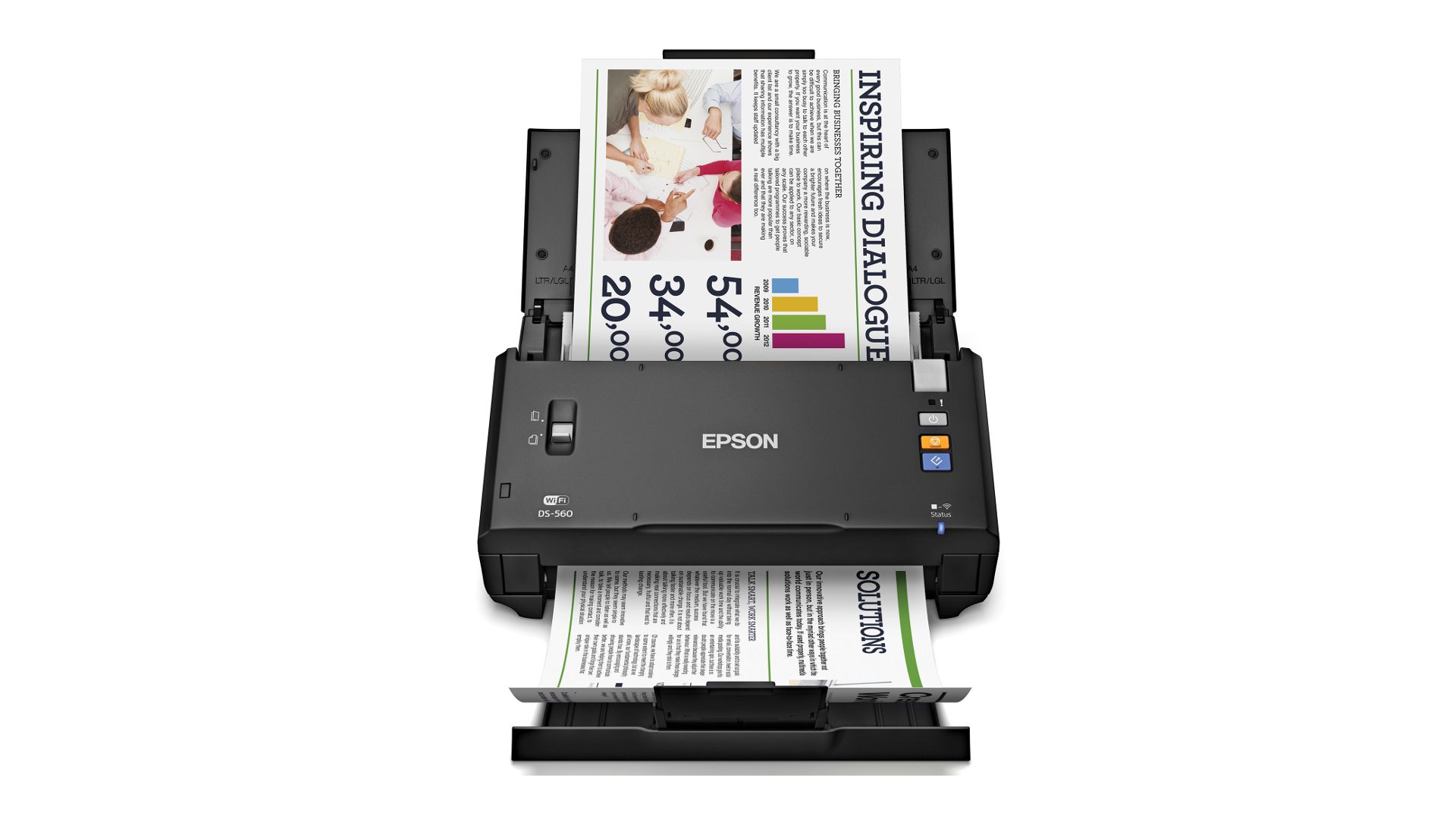
Thankfully, Epson has a relatively inexpensive roller assembly kit that you’ll probably want to order immediately (and in bulk) if you intend to shove 90,000 pages through the DS-560 in a month. And, while the rear input tray appears solid enough, the output shelf seems somewhat flimsy for that workload.
The lack of a USB port to scan to a flash memory device is an obvious omission. However, in practical terms, with no display to see the scanning results, one would be of very limited value.
Activating the AP Wi-Fi mode and connecting an iPad or Android tablet is a much more useful combination for those who want a self-contained and go-anywhere solution.
Overall, this is a lovely piece of hardware that worked quickly and effectively throughout our review period, and we’ve no qualms about recommending it.
What we wouldn’t endorse is the extra networking accessory, because at £276 (about $360) it’s not far off the total cost of the DS-560 alone (at some retailers, at the time of writing) – for what is effectively a networkable USB port.
The only other moan we have is that the output tray has guides on the sides that are spaced insufficiently to work with either A4 and Letter-sized paper. Not that this impacts the performance of the scanner in any significant way.
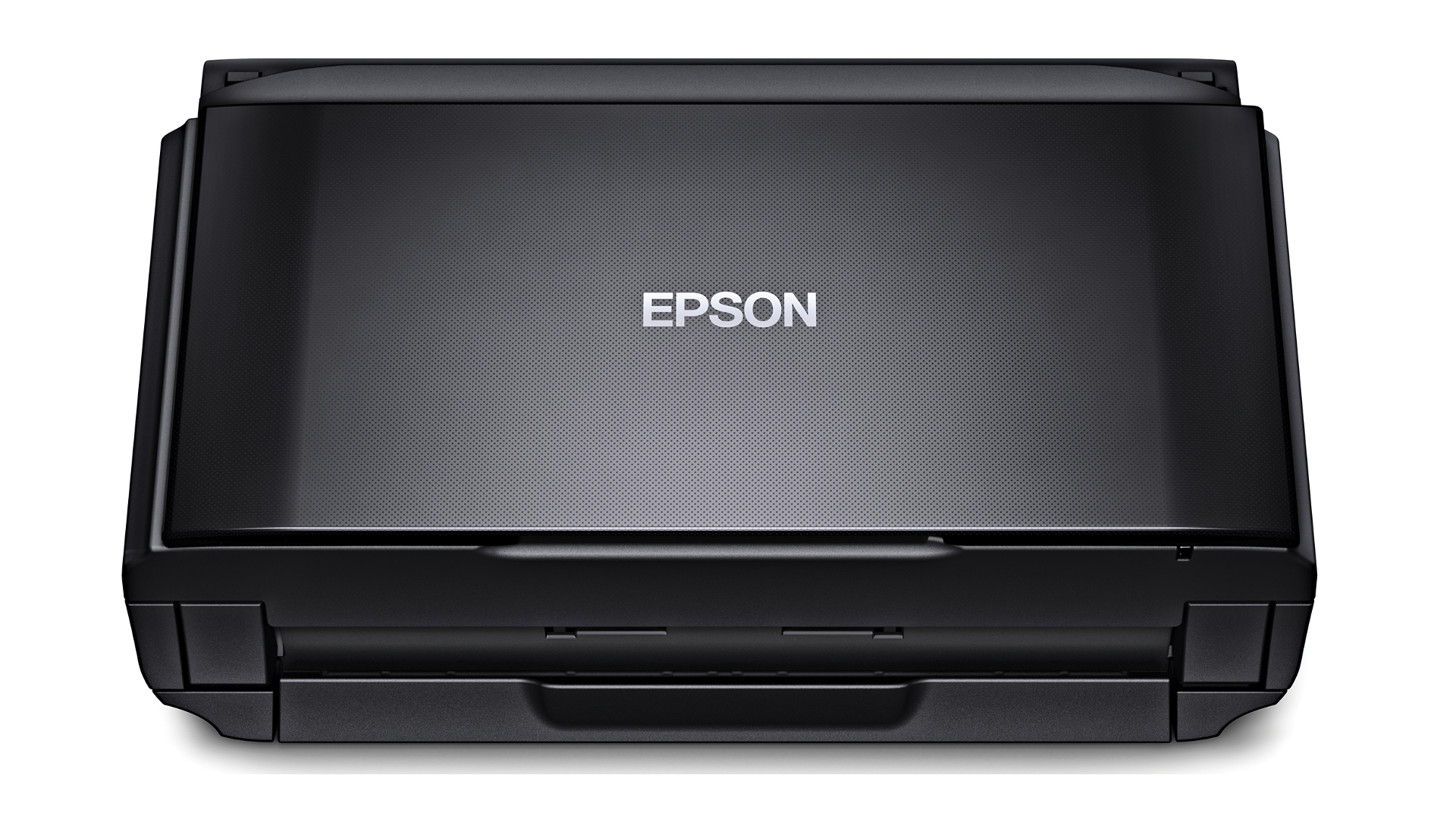
Final verdict
Despite being remarkably small, the Workforce DS-560 is a veritable workhorse for document capture and digital workflow management. It’s ideal for a small office that would like to avoid the purchase of filing cabinets, or the workspace issues encountered when housing them.
This device scans rapidly, processes the pages smartly, and proved easy to use and configure.
Our only reservation is those businesses that will buy this hardware and not invest in the internal processes needed to make document workflow deliver all the advantages it offers.
The Workforce DS-560 is certainly part of the answer, but a strategic plan for coordinating the capture, storage and access of scanned documents is also vital in taking full advantage of this product.
- These are the best scanners of 2017
Mark is an expert on 3D printers, drones and phones. He also covers storage, including SSDs, NAS drives and portable hard drives. He started writing in 1986 and has contributed to MicroMart, PC Format, 3D World, among others.
